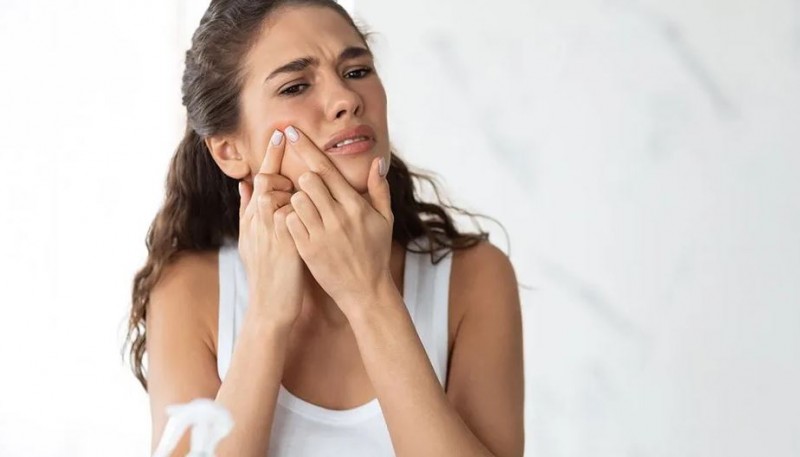
Hormones are integral messengers in our bodies, orchestrating the intricate balance necessary for the proper functioning of organs and muscles. In women, the production of hormones like estrogen and progesterone is crucial. Estrogen, often referred to as the female hormone, plays a significant role in regulating various bodily functions. However, when there is an excessive production of estrogen or an imbalance in other hormones, it can lead to several health issues, notably Polycystic Ovarian Syndrome (PCOS).
Signs and Symptoms of Hormonal Imbalance
Increased Body Hair: One of the noticeable signs of hormonal imbalance, particularly an excess of male hormones (androgens), is the growth of coarse, dark hair in typically male-pattern areas such as the chin, jawline, upper lip, abdomen, chest, and hands.
Changes in Skin and Hair: Hormonal changes can affect skin and hair health. Women may experience acne outbreaks, especially along the jawline and chin, known as adult acne, which is indicative of androgen imbalance.
Menstrual Irregularities: Irregular periods, characterized by very light or infrequent menstrual cycles (fewer than 10 per year), can signal hormonal disturbances, particularly an increase in androgen levels.
Body Odor: An increase in male hormones can sometimes lead to changes in body odor, often characterized by a stronger, more noticeable scent in sweat.
Weight Fluctuations: Hormonal imbalances can also contribute to weight gain, especially around the abdomen, and difficulty losing weight despite efforts to maintain a healthy diet and exercise routine.
Managing Hormonal Imbalance
Recognizing the signs of hormonal imbalance is crucial for timely intervention and management. Here are some effective strategies:
Dietary Adjustments: Avoiding dairy products and foods containing gluten can help regulate hormone production and reduce symptoms of hormonal imbalance.
Herbal Remedies: Drinking spearmint tea has shown promise in reducing excessive facial hair growth associated with hormonal imbalances.
Nutritional Support: Increase the intake of protein-rich foods in your diet to support overall hormone balance and promote overall health.
Supplements: Consider incorporating magnesium-rich foods like pumpkin seeds into your diet, as magnesium deficiency can exacerbate hormonal imbalances.
Skincare Routine: Implementing a skincare routine that includes dry brushing before bathing and oiling the skin afterwards can help improve skin health and reduce acne outbreaks.
Understanding the signs and symptoms of hormonal imbalance is crucial for early detection and effective management. By making targeted lifestyle changes, dietary adjustments, and incorporating natural remedies, individuals can better manage their hormonal health and mitigate the impact of imbalances on their overall well-being. It is essential to consult with a healthcare professional for personalized advice and treatment options tailored to individual needs. Taking proactive steps to address hormonal imbalances can lead to improved health outcomes and a better quality of life.
Monsoon Alert: Stay Safe with Healthy Eating Habits